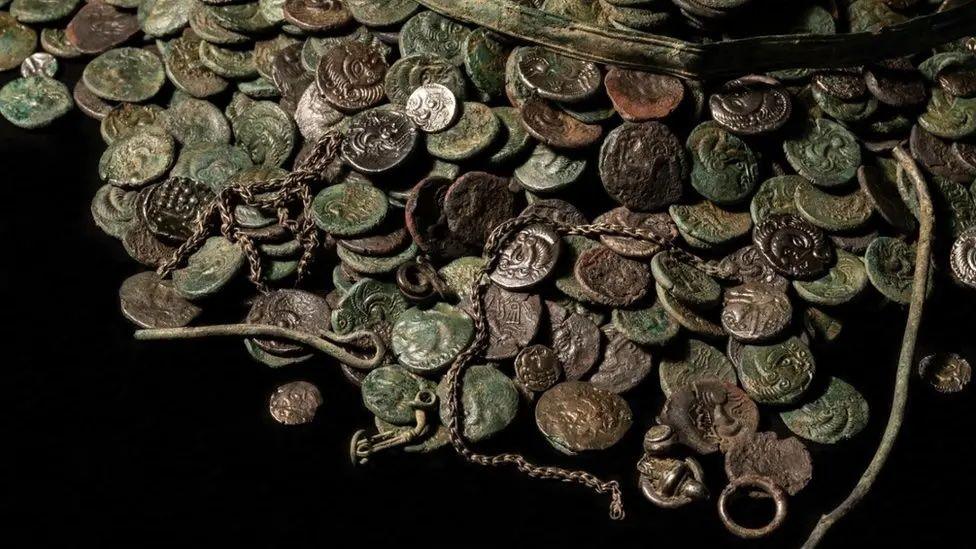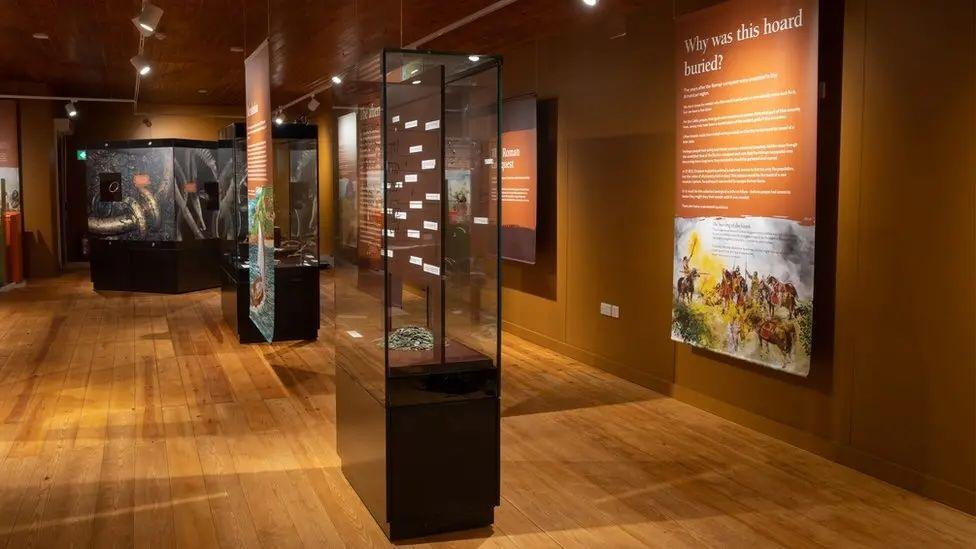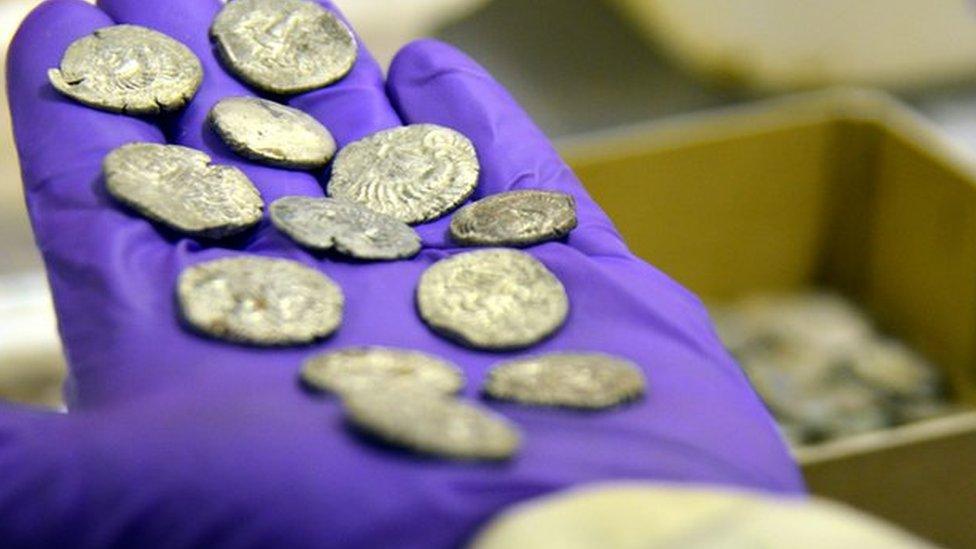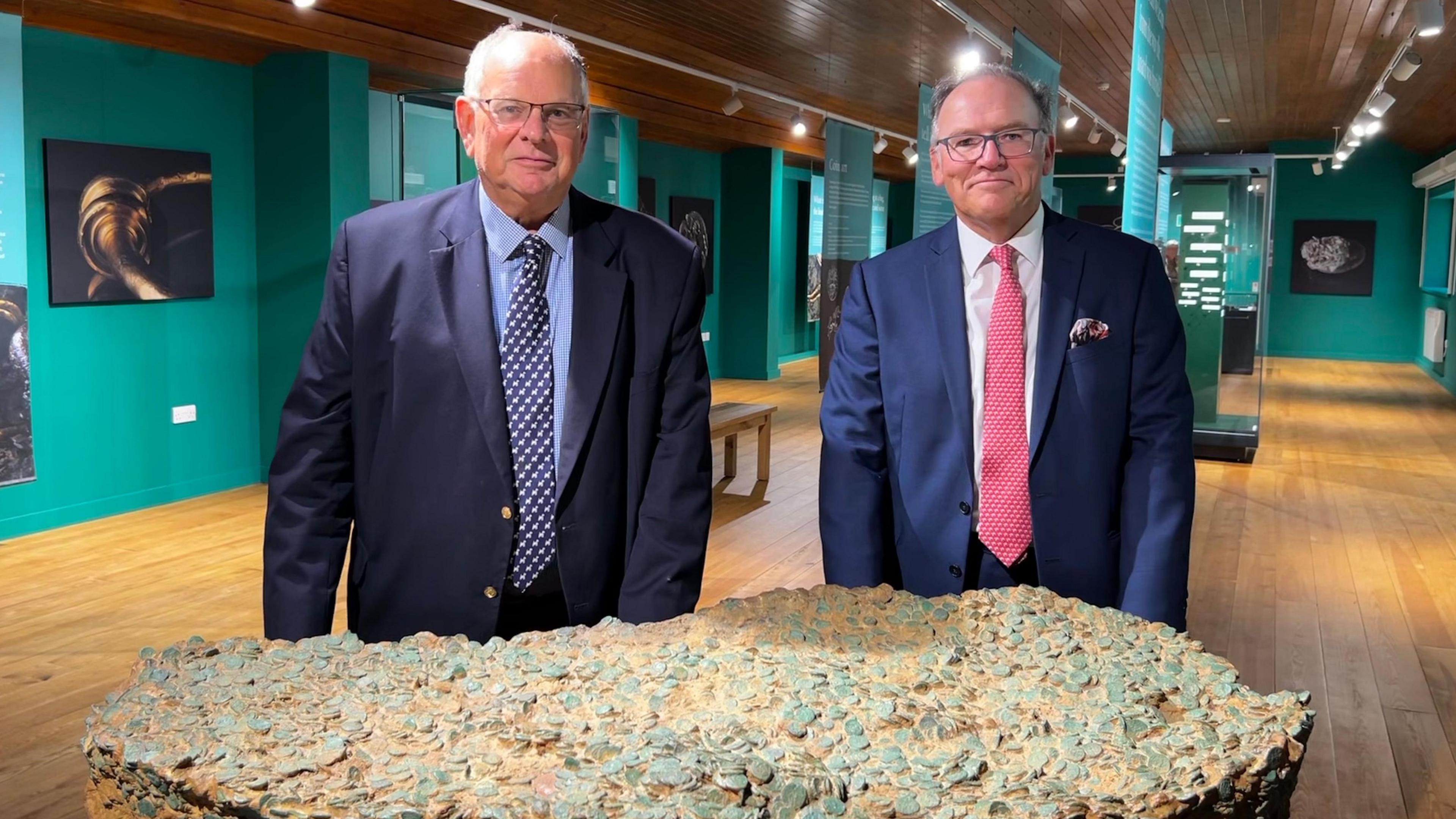Rewards for historical finds part of draft law

People would have 14 days to report finds to Jersey Heritage under the proposed law
- Published
A draft law suggests paying rewards to people who find archaeological objects in Jersey.
The idea is part of a proposed heritage law , externalwhich would also make it mandatory to report finds within 14 days.
Unlike the UK, Jersey currently does not have specific laws to protect and manage significant finds.
The Government of Jersey said the law aimed to protect the island's "rich archaeological heritage" and "collective memory" as well as help researchers.
Rewards would be calculated based on the find's market value and would be split between the finder and the owners of the land it was found on, provided the objects were discovered legally, according to the proposal.
Historical and archaeological finds would become the property of the people of Jersey, while treasure troves would be held in trust for the Crown by the island's government, it suggested.
All finds would be also be recorded in a central database, external.
England and Wales already have similar laws in place, which were set out in The Treasure Act 1996, as well as a national database of finds, external.
Although any historical find might be precious to the person discovering it, the legal definition of treasure in England and Wales relates to metal over a certain age.
Coin hoards, metallic objects more than 300 years old and made of at least 10% gold or silver, and groups of prehistoric metal objects are among the archaeological finds classed as treasure by the UK government.

Le Catillon II Hoard, which is on display at La Hougue Bie, contains more than 69,000 Iron Age coins
The Jersey government said the discovery of the world's largest Celtic coin hoard on the island in 2012 had exposed a lack of "sufficient clarity or protection" for how to treat historical finds.
The hoard, known as Le Catillon II Hoard, contained more than 69,000 Iron Age coins and was bought by Jersey's government for more than £4m.
As well as metallic treasure, the proposed Jersey law would also cover non-metallic man-made objects over 300 years old or of historical value, as well as ancient human or animal remains.
It would cover objects found below the low tide mark and on the seabed, unlike in the UK, where such finds are covered by wreck and salvage laws.
Officials said they were seeking feedback on the proposals until 12:00 BST on 8 September.
Follow BBC Jersey on X, external and Facebook, external. Send your story ideas to channel.islands@bbc.co.uk, external.
Related topics
- Published31 January 2020

- Published26 January

- Published26 September 2023

- Published5 October 2023
